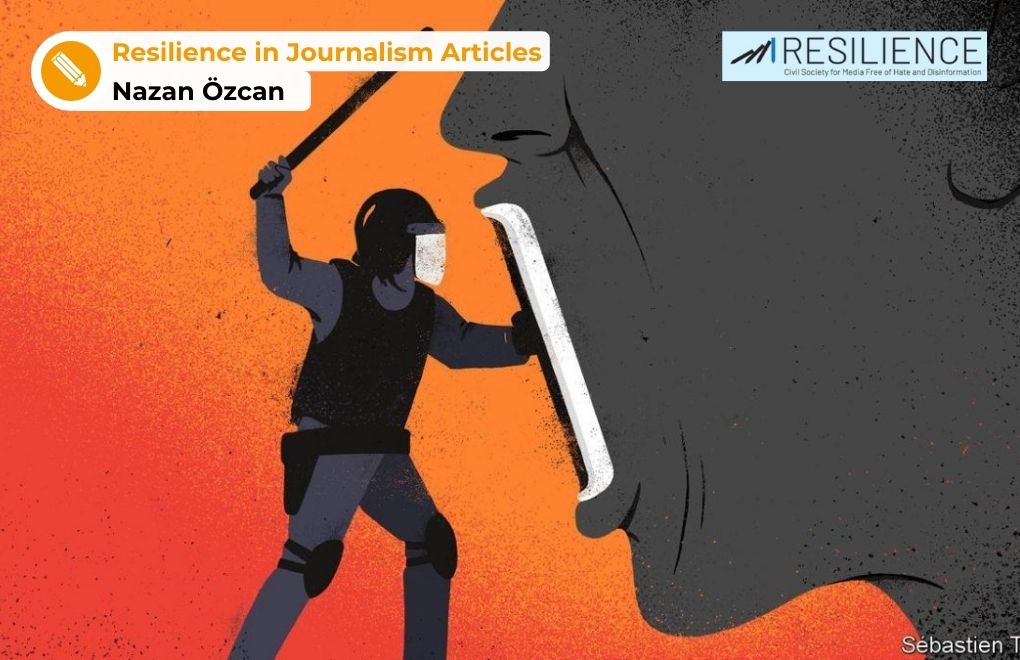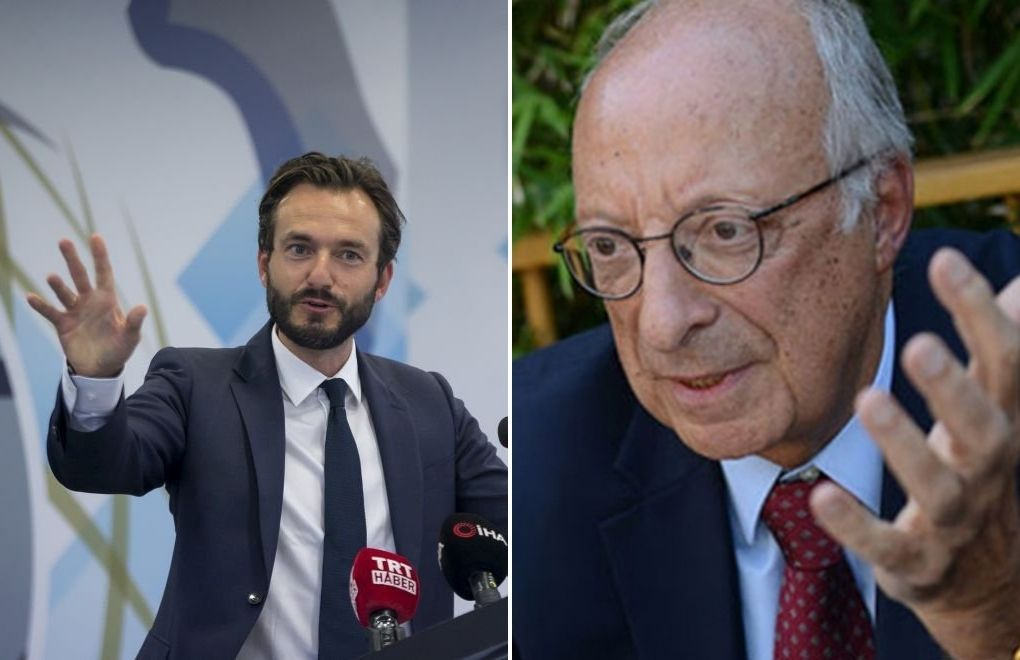Click to read the article in Turkish
"While journalists chase only the facts and real events, today's populist politicians pit people against each other by using 'emotional truths,' make minorities a target and, of course, they use the 'emotional truths' they created to harm the democratic rights of citizens. So, not actual information, but alternative realities are created. For a long time, these 'emotional truths' have become a tool for populist politicians to mobilize their grassroots.
"Because of this very reason, there is a need for a reliable media. And because of this very reason, we need to mobilize the media, journalism and real independent reporting. The media can no longer be part of politicians and policies that undermine people's democratic rights. The time to dispossess the politicians of information and truths. The information that is beneficial to the public and method of presenting this should be taken away from politicians and centers of power and handed over to the public and journalists, which are the rightful owners of them.
"According to a study, political figures have an influence that seriously escalates hate speech. Because politicians who use hate speech somehow make this normal. And unfortunately, combating this is not so easy when this comes from the highest level. Also, there are those who do hate speech as journalism and these are not punished easily."
Media of Turkey and the Balkans
Two first two paragraphs are the remarks of Aidan White of the London-based Ethical Journalism Network. The third one is of Ivana Jelaca of the Western Balkans Institute for Media Diversity. These remarks were made at the Fazana Media Festival, which took place in Croatia between September 6-12. The media of the Balkans and Turkey discussed in detail during the event.
While these evaluations were about the media in the Balkans, they also fit well in the media of Turkey. As the Balkans and Turkey are not far from each other geographically, they are not far from each other in terms of journalism, either.
The festival in Fazana
The main organizers of the festival that took place for the third time in the Communal Building in Fazana, a small coastal town in Istria region, were the Croatia Center for Investigative Journalism, the Media Diversity Institute and the South East European Network for Professionalization of Media (SEENPM), which bianet is also a member of.
The title of the festival this year was "The Power of the Media" and the participants mostly came from countries such as Bulgaria, Croatia, Kosovo, Serbia, Macedonia, Hungary, Montenegro, Albania, Turkey and England.
About 70 journalists, reporters, communication academics, researchers and media rights advocates discussed the situation of the media in the Balkans and Turkey from different perspectives. Topics such as media literacy, fake news, censorship, self-censorship, pressures on the media, the stance of the readers, the reliability of the media, ethical standards in the media, court verdicts about the press and hate speech were discussed.
Panel discussions titled, "Does the media rule the governments or do the governments rule the media?" "Disinformation, hate speech and the reliability of the media," "How to build confidence in the media in the Balkans?" "What are the laws that were developed to silence journalists?" once again showed that Turkey and the Balkan countries, many of which are currently waiting to become members of the European Union (EU), are not that different.
Common problems
Of course, it is not possible to say that Turkey and the Balkan countries are "twins" in terms of the media. However, there are a lot of similarities, common points and common problems. The politicians in the Balkans are not too different from those in Turkey. So, they do their best to silence the media. They do this by threats, legal proceedings, new laws or interference with media ownership.
It was not possible not to think about Turkey when Jeta Xharra, a TV journalists and a member of the Balkan Investigative Reporting Network, said that after they revealed the corruption of a prominent businessperson in Kosovo, their program was canceled and the businessperson sued them.
Sandor Orban of Hungary's Center for Independent Journalism said the president of the country (his namesake) gets the media onside not by intimidating it but by pouring money into it and added: "Journalists working in those media are very pleased with their situation. What can you say or what you can do to make them return to real journalism?" But what we can do in Turkey?
A journalist talking about Serbia said, "The people in the region think that the media has been hijacked," while a reporter from Kosovo said, "Journalists are attacked and the civil society does not rise up at all. We should criticize ourselves in Kosovo. People don't trust us. In Kosovo, journalists now take briber for publishing or not publishing an article. People see this. Press organizations remain silent and moreover, the people don't care." Can we say it differs from Turkey?
Better than Turkey
The only good news comes from Bulgaria: because a government has not yet been formed after the elections, the press has "temporarily" gained some freedom. They say they view it as a beginning, at least for now.
The tragic thing is that everything that was talked and discussed about journalism can be adapted to Turkey without changing a word. Maybe that's why many questions are asked about Turkey's media and Turkey. When they want to make comparisons with their own countries, perhaps the only thing to do is to refer to Reporters Without Borders' 2021 Media Freedom Report.
Out of 180 countries, Croatia ranks 56th, Kosovo ranks 78th, Albania ranks 83rd, Macedonia ranks 90th, Hungary ranks 92nd, Serbia ranks 93rd, Montenegro ranks 104th, Bulgaria ranks 112nd and Turkey ranks 153rd. So, things are not good in the Balkans and not good at all in Turkey. Journalists from the Balkans, who "suffer" more than European journalists, getting together in a festival like this allows an exchange of experiences while creating an opportunity for "growing the struggle." With such optimism, the festival starts and ends with "keep fighting." As Aidan White said, "When the politics is hostile and the news media is under fire, journalists should stand together."
Judging by the fact that the city of Fazana has declared itself as a "journalist-friendly city" and it has already been announced that the title of the next year's festival will be "Media and Women," the third festival for journalists from the Balkans and Turkey was indeed "this is just the beginning and the struggle continues".
SEENPM General Assembly
The South East European Network for Professionalization of Media (SEEMPM), which bianet is a member of, held its General Assembly at the festival on September 11, Saturday. In the General Assembly, where bianet and 14 media organizations attended, the Board of Directors were elected after a yearly evaluation. Erol Önderoğlu from bianet, Sasa Lekoviz (CIN Fazana), Elvira Jukić-Mujkić (Mediacentar, Sarajevo), Yana Pelovska (MDC, Sofia) ve Marina Klaić (NSSJ) were elected as the members of the new Board of Directors. |
Silencing journalists
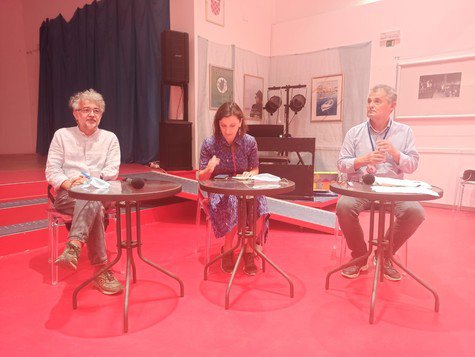
After the elections, a panel discussion titled, "What are the laws that were developed to silence journalists?" took place.
During the panel discussion where examples were given about arbitrary lawsuits against journalists to impair social solidarity, bianet media freedom rapporteur and RSF Turkey representative Erol Önderoğlu mentioned investigative journalist Çiğdem Toker, who is facing the threat of paying a total of 2.5 million lira for damages in four lawsuits filed in the last few years and Evrensel newspaper columnist Ceren Sözeri, who is facing to pay 200,000 lira for damages because of a column article.
Article 19 representative Roberta Taveri said that the influence on the EU and the Council of Europe should be increased to prevent deterrent legal procedures (SLAPP) and develop preventive mechanisms against them. (NÖ/VK)





.jpg)
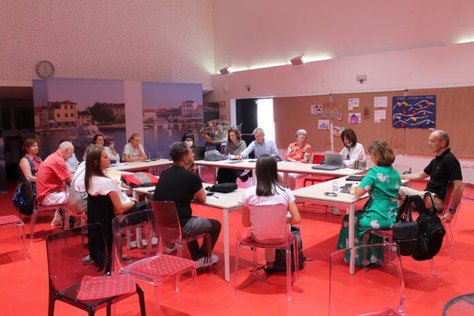
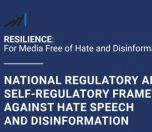
.jpg)
.jpg)
